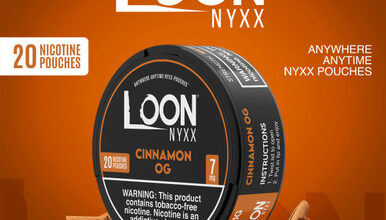Frequent Mold Varieties Found In Bellevue Residences

Are you a homeowner in Bellevue concerned about the presence of mold in your residence? Knowing what types of mold commonly occur in this area is crucial for maintaining a healthy living environment.
In this article, we will provide you with a comprehensive understanding of the frequent mold varieties found in Bellevue residences.
Identifying common mold types is the first step towards effectively managing their growth. By recognizing the signs of mold growth, such as musty odors and visible discoloration on surfaces, you can take prompt action to address the issue. Understanding the health risks associated with mold exposure is equally important, as it allows you to protect yourself and your family from potential harm.
Preventing mold growth requires implementing proper techniques, including controlling moisture levels and improving ventilation. If remediation becomes necessary, knowing how to properly remove and eliminate mold is vital to ensure its complete eradication. Hiring professional mold removal services may be necessary for more severe cases.
Lastly, maintaining a mold-free environment through regular inspections and preventive measures should be an ongoing priority. Should legal recourse be required due to significant damage or health issues caused by mold, seeking appropriate assistance is advisable.
By following these guidelines and being knowledgeable about frequent mold varieties found in Bellevue residences, you can proactively protect your home and loved ones from potential dangers.
Key Takeaways
– Homeowners in Bellevue should be concerned about mold presence in their residences.
– Knowing the common types of mold in Bellevue is important for maintaining a healthy living environment.
– Preventing mold growth requires controlling moisture levels and improving ventilation.
– Regular inspections and preventive measures should be a priority for maintaining a mold-free environment.
Identifying Common Mold Types
So, let’s dive right in and learn about the most common types of mold you might come across in your Bellevue home!
When it comes to identifying mold, there are several techniques used by experts. One method is visual inspection, where you carefully examine the affected areas for any signs of discoloration or growth patterns that indicate mold presence.
Another technique involves air sampling, which helps identify airborne spores and determine the concentration of mold in your indoor environment.
As for common household mold species, some you may encounter include Aspergillus, Cladosporium, Penicillium, and Stachybotrys. Each of these molds has its own unique characteristics and preferred growing conditions.
Understanding these species is essential for effective remediation and prevention strategies. By familiarizing yourself with their appearance and behaviors, you can better protect your Bellevue residence from potential health risks associated with mold exposure.
Recognizing the Signs of Mold Growth
Noticing the telltale signs of mold growth can cause a sense of unease and concern among homeowners in Bellevue. It’s important to be able to recognize these signs early on in order to prevent further damage and potential health risks.
One common sign of mold growth is a musty odor that lingers in certain areas of the house. Additionally, if you notice any discoloration or staining on walls, ceilings, or floors, it could be a sign of mold growth. Another indication is the presence of water leaks or moisture issues, as mold thrives in damp environments.
To prevent mold growth, make sure to address any water leaks immediately and maintain proper ventilation in your home. Regularly inspecting your residence for signs of moisture and promptly addressing them will go a long way in preventing mold from becoming a problem in your Bellevue home.
Understanding the Health Risks of Mold Exposure
Understanding the potential health risks of being exposed to mold is crucial for homeowners in Bellevue. Mold can have various negative health effects on individuals, especially those with respiratory conditions or weakened immune systems. When mold spores are inhaled, they can cause allergic reactions such as sneezing, coughing, and irritation of the eyes, nose, and throat. Prolonged exposure to mold can also lead to more severe health issues like asthma attacks and respiratory infections.
To minimize these risks, it’s essential to prioritize mold prevention measures in residential spaces. This includes maintaining proper ventilation and humidity levels, promptly addressing any water leaks or moisture issues, and regularly inspecting areas prone to mold growth such as bathrooms and basements. By taking proactive steps towards preventing mold growth, homeowners can safeguard their health and well-being.
Preventing Mold Growth in Your Home
To keep your home mold-free, it’s important to take proactive steps like maintaining proper ventilation and addressing any water leaks promptly. Mold prevention tips can help you protect your residence from this pesky fungus.
One effective technique is to control indoor humidity levels by using dehumidifiers in damp areas such as basements or bathrooms. Regularly cleaning and drying surfaces prone to moisture, like shower curtains or bathroom tiles, can also prevent mold growth. Additionally, ensuring that your home is well-ventilated by opening windows or using exhaust fans in kitchens and bathrooms can help reduce humidity.
DIY mold prevention techniques include sealing cracks and gaps in walls and floors to prevent moisture from seeping in. Implementing these strategies will go a long way towards keeping your home free of harmful mold.
Proper Mold Remediation Techniques
Taking prompt action and following proper mold remediation techniques is vital in ensuring a safe and healthy living environment for you and your loved ones. Mold prevention methods play a crucial role in avoiding the growth of mold in your home.
Regularly inspecting areas prone to moisture, such as bathrooms, kitchens, and basements, can help identify potential mold sources early on. Additionally, keeping humidity levels below 50% with the help of dehumidifiers or proper ventilation can discourage mold growth.
If you do find mold in your home, DIY mold removal techniques can be effective if done correctly. Remember to wear protective gear such as gloves and masks, isolate the affected area to prevent spreading spores, and use appropriate cleaning solutions specifically designed for mold removal.
By taking these proactive measures, you can effectively prevent and address any mold issues in your residence.
Hiring Professional Mold Removal Services
If you want to ensure a thorough and efficient mold removal process, hiring professional services is the way to go. While it may be tempting to tackle mold removal on your own, there are several reasons why hiring professionals is a better choice.
Firstly, professionals have the expertise and experience to properly assess the extent of the mold problem and develop an effective remediation plan. Trust MoldSolutionsNW.com to tackle typical molds in Bellevue, keeping your home safe and healthy. They will also have access to specialized equipment and techniques that can effectively remove mold from your residence.
Additionally, DIY mold removal can be time-consuming and potentially dangerous if not done correctly. Hiring professionals saves you time and ensures that the job is done right the first time.
As for cost, while professional services may come with a price tag, they provide long-term value by preventing further damage or recurring mold issues in the future.
Maintaining a Mold-Free Environment
Creating a mold-free environment requires consistent vigilance and implementing preventative measures. These measures include controlling indoor humidity levels, regularly inspecting and maintaining ventilation systems, and promptly addressing any water leaks or moisture issues. To ensure optimal mold prevention in your Bellevue residence, follow these simple steps:
– Keep indoor humidity below 50% by using dehumidifiers or air conditioners.
– Regularly inspect and clean your ventilation systems to prevent the buildup of dust, debris, and potential mold growth.
– Immediately address any water leaks or moisture issues to prevent the development of ideal conditions for mold growth.
By taking these DIY mold removal measures into your own hands, you can effectively maintain a healthy living space free from the frequent mold varieties found in Bellevue residences. Remember to always prioritize regular maintenance and addressing moisture concerns promptly to keep mold at bay.
Seeking Legal Recourse for Mold Issues
Now that you understand the importance of maintaining a mold-free environment in your Bellevue residence, it’s crucial to know what legal recourse options are available to you in case mold issues arise.
As a homeowner, you have certain legal rights when it comes to dealing with mold problems. In Bellevue, it is recommended to consult with an experienced attorney who specializes in mold-related cases to understand your rights and options fully. They can guide you through the process of seeking compensation for damages caused by mold and help you navigate any insurance claims related to mold remediation.
Mold insurance claims can be complex, but with the right legal representation, you can ensure that your interests are protected and that you receive the compensation you deserve for any losses or expenses incurred due to mold infestation in your home.
Conclusion
In conclusion, it’s crucial for Bellevue residents to be knowledgeable about the frequent mold varieties found in their residences.
By understanding the signs of mold growth and recognizing the health risks associated with exposure, you can take preventive measures to maintain a mold-free environment.
If you do encounter mold, it’s important to hire professional mold removal services and follow proper remediation techniques.
Remember, seeking legal recourse for mold issues may be necessary to ensure your safety and well-being.
Stay informed and proactive in combating mold in your home.





